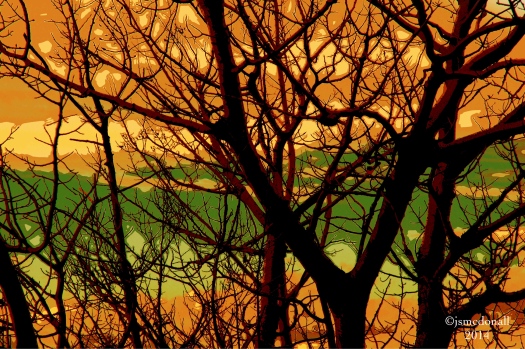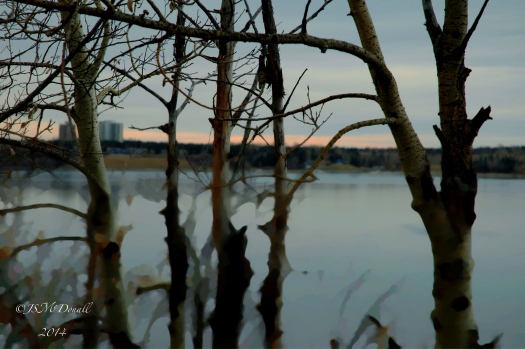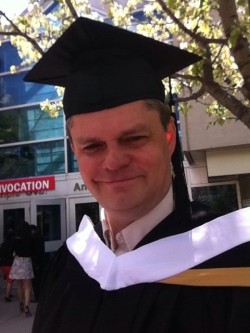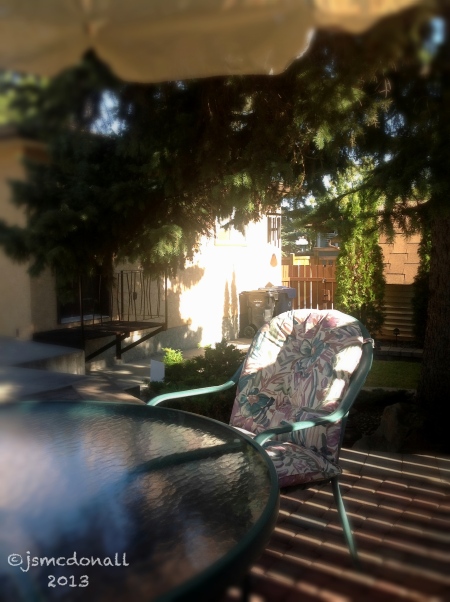I have come to a conscious conclusion that the best approach to living is found in balance. Balance of opinions, of activity, of thought, of belief – every secret of success in my estimation – in one way or another – resides in balance. Too much of anything is no good for anyone. Too little leads to emotional or spiritual atrophy, or both.
The importance of this to childhood is obvious.
Let’s extend the metaphor of our first exercise a little – the one of Solzhenitsyn’s Gulags. Let’s pretend that we are parents to a fictitious child who we are planning to send to a school. The school houses each of the four streams of religion, science, philosophy and art on its own island. In an ideal, balanced childhood, our child would spend equal amounts of time on each island and would thus be provided with a solid grounding in each stream. He would learn to use his equally-acquired knowledge as impetus toward his own passions.
Unfortunately, the reality is seldom so ideal. Exposures in early childhood usually reflect our ambitions – the parents’ – not the child’s and these are not always governed by common sense. We parents have our own motives for the things that we do. Often, for example, we will try to correct our own disappointments by weighting the exposures of our child to compensate for where we went wrong. The inevitable result of this is that our child – who should be encouraged to find his own passions – is often rather encumbered with ours. This mistake is compounded if we dictate everything that he does – if we take it upon ourselves to decide what makes him happy then he usually won’t be.
Perhaps in our zeal to make life better for him we place our child on Religion Island. We wish to give him God. We wish to instill in him the blessings which we believe come from an exposure to God and faith, and from being bound to Him. Our own life journey has led us to God and we want to pass our beliefs along, good-naturedly saving the child all the years of searching and pain we have endured. But we forget that despite our best efforts he will surely endure pain of his own. We forget that he needs to find God in his own way and in his own time – that being immersed in it at youth might lead to appreciation, but it also might not. Too much religion can be less than healthy – especially in the young – and a steady diet of piety and faith denies the other essential aspects of our child’s personality.
For many people, though, God is already Dead. Weisel talks in his tale of this name about the lack of God at key moments, reasoning that God must be dead or atrocities against children and other innocents simply would not happen. Many take this stand in the face of intolerable personal challenges – asking ‘how can God exist when there is so much horror in the world?’ This illogical assumption of a correlation between life’s randomness and behaviour or belief in a supreme being is the purview of both believers and non-believers alike – believers call it faith and it supports them. Non-believers call it proof of their assertion that God cannot possibly exist as described in the rhetoric.
Thus, if we leave our child to languish only on Religion Island he is more likely to suffer spiritual atrophy than to enjoy spiritual harmony.
Perhaps, then, we should place him on Philosophy Island – the one on which they talk only about knowledge and knowing. Philosophy Island fosters thought rather than contemplation – it focuses on existence rather than simple being. Its emphasis is on the nature of being and the state of man as he relates to his fellows and as he reports to himself. The child on Philosophy Island will certainly learn about his nature (“…no man could become a scoundrel in camp if he had not been one before”) but he will still lack the ability to synthesize his learning into a cohesive argument of his true self.
Too much of such a nebulous existence is no more healthy than a purely religious upbringing. Too much abstraction can pull a child away from the concrete and the assured, into the realms of the uncertain. Too much intellectual depth without breadth of foundation can cause spiritual and emotional inertia in even the strongest of individuals. Humans have a simple need for perspective that philosophy alone cannot provide. Philosophy is – as humans – finite in its understandings, and imperfect in its comprehension.
So what about Art Island? That seems like a very attractive place for us to ensconce our progeny. The children there learn about beauty and creativity and art and music and emotion and celebration of life – and these are surely wonderful things – except that their creative products will always be limited in scope and depth to the mechanisms of method and application. They cannot appeal to their spiritual selves because they are not being taught about them. They cannot draw from rational thought because that is not part of their curriculum. They cannot even access the scientific world because they do not understand it. Their art, music, poetry and writing exists, but it exists in a void which renders their work nothing more than daubs of paint on a canvas, splashes of dots on a manuscript, or formulaic associations on a page. The source of inspiration for their labours is limited to what they see around them. Without access to the religious, scientific, and philosophical all they can really do to secure inspiration is reference previously-produced works.
Or we could place our child on Science Island. That’s the one that teaches physics and chemistry, and biology, and methodology, and organization and determination. There’s a lot of knowledge on Science Island, but it is delivered only in a closed-minded, prove-it-or-lose-it, don’t-believe-what-you-can’t-see kind of way. Science Island is where left-brain agnostics gather to worship the God of provable consensus. To surround our child with this kind of ugly rationality is to steal from him the chance at a spiritual or symbiotic connection to the universe in which he lives. Science proposes much but ultimately delivers little. It can teach our child the empirical, but the true mysteries of the world – of life and death and love – do not have scientific answers.
Heisenberg speaks of two kinds of revelation of God: “The one was written in the Bible and the other was to be found in the book of nature. The Holy Scripture had been written by man and was … subject to error, while nature was the immediate expression of God’s intentions.” This implies a relationship between imperfect man and the perfect environment and underlines the lack of perspective suffered by any child for whom exposure is limited to the purely rational and the scientific.
If each of these islands had a library it would be very small indeed because it would contain only the volumes which pertain to its own narrow discourse. Each collection would have a limited focus because the true breadth of human experience and enjoyment comes only when these disciplines are combined. Balance is always the key. Knowledge of each stream is important, exclusion of none is essential. But a complete human being has awareness of the teachings of each of these islands. The perfect school for our child will shuffle his impressionable mind equally among these islands, and even on to other more distant lands, to make his breadth of knowledge that much greater.
While it is possible and even advantageous to focus on a single idea for a time, there is no long-term benefit to a narrow purview. The best approach for any concerned parent is balance of exposure to many forms of knowledge – this provides all the benefits of perspective, concern, understanding, rational thought, scientific evaluation and assessment, and faith in all the best proportions.
At my age it is difficult to effect a significant change in foundational attitude. My core beliefs are set by a combination of the scientific (genetic factors) and the environmental. I have passed through the acquiescent stages of childhood, in which knowledge is soaked up like a sponge. I have survived the turmoil of rebellious youth in which I questioned all my teachings. I have endured the difficult years spent establishing my place in the world, and my beliefs about it – aside from and in communion with those parental core beliefs which I decided to keep. In truth, though, as open-minded as I like to think I am, it is only in the past year that I have started to allow for elements of all of these streams to shape me. In the past year, some challenging personal experiences have led me to consider all the aspects of this incredible journey, and to apply this credo of balance more critically. Balance is now more important to me than it has ever been.
The gulag has given me a working metaphor by which to visualize this balance in my own life, and to reach for its achievement.



